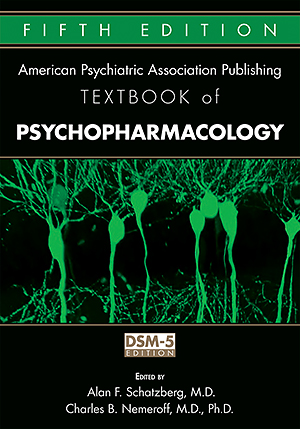Chapter 11.Sertraline
Sections
Excerpt
Research has implicated dysregulation of serotonin (5-hydroxytryptamine [5-HT]) in mood and anxiety disorders. Researchers therefore identified compounds that are selective in blocking neurotransmitter reuptake and yet have little agonist and antagonist activity at receptors thought to be associated with adverse effects. Sertraline, a naphthylamino compound that is structurally different from monoamine oxidase inhibitors (MAOIs) and tricyclic antidepressants (TCAs), is a member of this class of drugs (Guthrie 1991; Heym and Koe 1988).
Access content
To read the fulltext, please use one of the options below to sign in or purchase access.- Personal login
- Institutional Login
- Sign in via OpenAthens
- Register for access
-
Please login/register if you wish to pair your device and check access availability.
Not a subscriber?
PsychiatryOnline subscription options offer access to the DSM-5 library, books, journals, CME, and patient resources. This all-in-one virtual library provides psychiatrists and mental health professionals with key resources for diagnosis, treatment, research, and professional development.
Need more help? PsychiatryOnline Customer Service may be reached by emailing [email protected] or by calling 800-368-5777 (in the U.S.) or 703-907-7322 (outside the U.S.).



